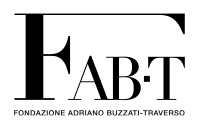10th Arturo Falaschi Lecture
Pavia, venerdì 10 Giugno 2022, ore 10:30
AULA “A. Falaschi“, IGM-Luigi Luca Cavalli-Sforza, Via Ferrata 9 – 27100 PAVIA
Prof. Stefano Gustincich – Associate Director for LIFETECH, Istituto Italiano di Tecnologia, Genova, Italy
“The dark matter of the genome”
More than 20 years have passed since the completion of the first draft of the human genome. A protein coding-centric view of genome’s output left many fundamental questions unanswered: given that mammals present a similar number of genes, where is information located for evolutionary complexity? Is there a function for the non-coding part of the genome including for the so-called junk DNA, mainly composed by repetitive sequences? Since then, our view of the functional output of the genome is radically changed. Transposable Elements constitute a relevant part of the functional genome shaping its general organization, driving evolution and controlling gene expression at different levels as mobile DNA and regulatory RNAs. Large-scale projects such as FANTOM (Functional ANnoTation Of the Mammalian genome) and ENCODE (The Encyclopedia of DNA Elements) have led to the discovery that a great majority of the transcriptome is composed by a diversified class of long noncoding RNAs (lncRNAs) that are transcribed, may be spliced but do not lead to protein synthesis. This large amount of untranslated RNAs has important, yet under-characterized, regulatory functions in the gene expression program of a cell, and it has significantly contributed to the evolution of complex life and species divergence. Importantly, lncRNAs can represent an almost unlimited reservoir of new therapeutic RNAs to confront unmet medical needs. I will discuss how Transposable Elements and lncRNAs have driven evolution and are crucial regulatory hubs for cells’ differentiation and homeostasis. I will also provide a specific example of lncRNAs with therapeutic potentials (SINEUPs).
Per maggiore informazioni: Segreteria IGM CNR, Via Ferrata 9A Pavia
tel. 0382 546361 – email: direttore@igm.cnr.it – https://www.igm.cnr.it/

